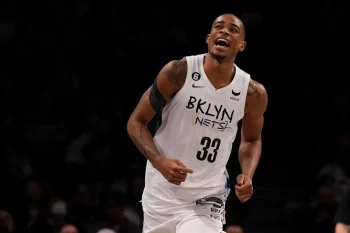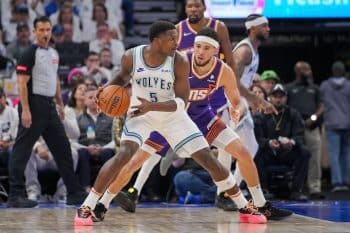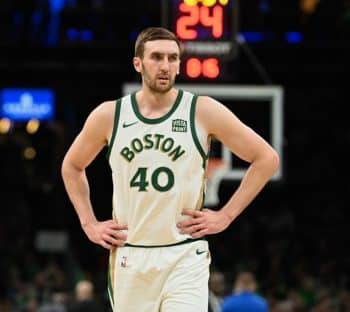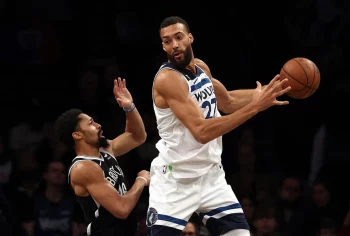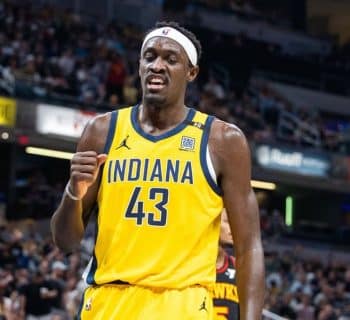NBA
NBA Daily: Russell Westbrook — Full Throttle

Russell Westbrook doesn’t care what you call him, whether a high-usage, low-efficiency chucker, an anti-spacer that clogs the lane, or an empty stat-chaser. To Westbrook, it’s all the same: noise, especially if you are focused on Basketball Betting.
And, no matter what you may think of him, nothing is stopping Westbrook from playing at his own pace: fast (to say the least).
Westbrook’s style is so lively, so twitchy, that it’s hard not to it in just about everything he does on the court. While it’s certainly contributed to many of his flaws, the aggression he’s played with, the bounce in his step, has helped him rack up the accolades and eye-popping stats that he has throughout his career.
As a basketball player, Westbrook is the quintessential perfect storm; a tornado of fire, accolades and counting stats.
But because his warts — his sans-Kevin Durant postseason success, his paltry shooting numbers (particularly this season) — are as obvious as his talent, nobody seemed enthralled when it was announced that Westbrook was set to rejoin James Harden, this time with the Houston Rockets. Dating back to Kevin Garnett and Shaquille O’Neal in 2010, there has arguably never been as little fanfare concerning two former MVPs joining forces.
There was one silver lining, however: in his new home, Westbrook would be surrounded by shooters. Better yet, shooters that would prove consistently reliable on the defensive end. In Houston, Westbrook wouldn’t have to be Mr. Do It All. But would it be enough?
No was the early, and loud, return. Through the season’s first two months, the Rockets were 23-11, a strong record, no doubt. But fans couldn’t help but wonder if Westbrook had helped, or hurt, their cause. By New Year’s Eve, Houston was plus-3.9 with Westbrook on the floor, but were somehow better — plus–9.5 — with him off.
The Rockets may have managed with Westbrook, but he wasn’t making them better. Of course, in that time, Westbrook had carried his weight as Houston’s no. 2 — 24.2 points and 7.1 assists — but his efficiency was as bad as it had ever been, if not worse. His 43/23/80 splits, while also coughing the ball up 4.4 times a game, had Rockets fans in shambles, the 23 percent from three-point range especially glaring as Westbrook was taking nearly five a game.
Making matters worse, Chris Paul, whom Daryl Morey traded for Westbrook, was not-so-quietly having his healthiest, most productive season since 2016 with the upstart Oklahoma City Thunder. On top of Westbrook’s struggles, Paul’s resurgence made it seem as if Morey had made a terrible mistake.
But, Westbrook seemed to turn a corner in the new year. In January, he averaged 32.5 points on 52/25/76 splits, while the Rockets were plus-2.5 with him on the court and minus-0.9 with him off. While that was an improvement, Houston went 7-7, though Westbrook missed four of those games. Even if he was technically better, he still served as the scapegoat.
Something was holding both the Rockets and Westbrook back.
That something, in Westbook’s case, was the Rockets. Morey and Co. had asked Westbrook to play their style, which meant spot-up threes — not exactly Westbrook’s forte — and a slower pace. In essence, it was the complete antithesis of Westbrook. In time, it became clear that, if Morey’s experiment was ever going to work, Houston would have to adapt to Westbrook, not the other way around.
And, because Morey would do anything and everything in his power to win, the Rockets did just that. By trading Clint Capela, who, while a young, proven and still promising big, was a poor fit with Westbrook, for Robert Covington, Houston embraced small-ball and, in turn, embraced Westbrook’s ability and game to the fullest extent.
Relying on Covington, Danuel House Jr and PJ Tucker to hold their own against much bigger frontcourts will be an interesting sight come playoff time. And trading Capela — a young, high-upside and cost-controlled big — is certainly a gamble. But this version of the Rockets may arguably be the closest thing we ever see to the “perfect team” around Westbrook, and it may just be Houston’s best bet to win a title.
Now, the lane is completely free. Westbrook will be playing with shooters virtually non-stop. That means fewer threes on his part, driving to the basket with no one to get in his way, opening up more room for those shooters. And, while Westbrook’s perfect team does not equate to the perfect team period, it could equate to a deeper playoff run.
Since Houston’s shift, the returns have been promising. Post-Capela (his last appearance was Jan. 29), Houston has played six games and gone 4-2. And, minus their stinker against Phoenix, another game in which Westbrook did not play, each of those games has provided ample proof that an entire small-ball squad can be viable. Houston came out the victor against two of the best teams in the NBA this season, the Los Angeles Lakers and Boston Celtics, and another team with plenty of size, the New Orleans Pelicans.
The Rockets have also averaged 115.9 points per game, while Westbrook has led the team with 34 points per game and shot 51.5 percent from the field. So, in other words, he’s being efficient. Just don’t ask about his three-point shooting.
A “sample size” disclaimer will probably haunt the Rockets between now and the postseason, but the headline here is that thus far, it’s working. It’s not all because of Westbrook — through this stretch, Houston has been a plus-0.9 when Westbrook’s hit the bench — but he’s not hurting them as he did before.
In due time, we’ll see if Morey’s latest experimental maneuvering will pay off. But it’s clear that, if they go down, they’ll go down with Westbrook, rather than against him. They’ll be confident for sure, because, come the postseason, Westbrook will hit the court as he always has: full throttle.
